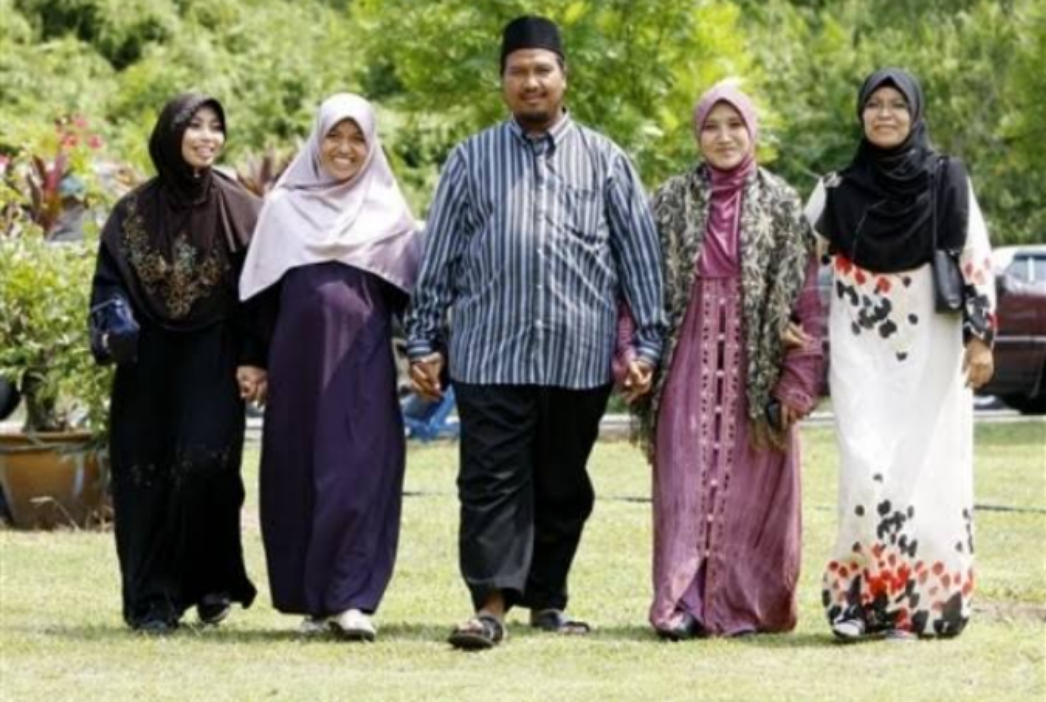
Why Does Islam Permit Polygamy?
Why Does Islam Permit Polygamy?
Polygamy is a marriage between a man to more than one wife or women at the same time. This is a a common practice among Muslims which was made permissable by Islam. Almost one person out of five Muslims is believed to have more than one wife or is practising polygamy.
It is worthy to note that, Islam was by no means the first religion to permit polygamy, nor did Islam introduce it. On the contrary, Islam was the first religion to organize marriage and to limit the number of wives according to strict stipulations. In the pre-Islamic era, polygamy was practiced not only by the Arabs but also by many other nations all over the world.
The abolition of unjust and brutal customs practiced for generations by issuing one command is an impossibility. Islam took this into consideration and made a series of laws by which it was able to enforce a gradual abolition of he hitherto unlimited number of wives that men were allowed to marry.
Islam limited the number of wives to four: "Marry women of your choice, two, or three, or four.." Q:[4/3].
There was, however, an important condition which had to be considered before marrying more than one wife, namely treating the wives equally. The Prophet warned men against not treating wives equally by saying that he who has two wives and does not treat them equally will pay dearly for this sin on the Day of Judgement.
The following Qur'anic verse states that treating one's wives equally is a very difficult matter and that however conscientiously a person tries to do so he will never be able to treat them equally: "You are never able to be fair and just as between women, even if it is your ardent desire", Q:(4/129).
Thus, since equal treatment of wives is impossible, however hard a person tries, a man should marry only one wife and this is stated in the following Qur'anic verse: "But if you fear that you shall not be able to deal justly (with them) then only one", Q:[4/3].
It is very important for us to note that this religious law was enforced more than fourteen centuries ago.
It is evident from the aforementioned facts that Islam neither introduced nor enforced polygamy, since it was a deeply rooted system which had existed before the advent of Islam. Islam dealt with the matter in a practical manner without causing a violent reaction among the community. This indicates that in Islam monogamy is the rule and polygamy the exception.
Islam permitted this exception in certain cases such as during and after battles in which many men were killed leaving widows and orphans without any means of support. Consequently, marriage to such women is a virtue for it not only provides them with a decent life but also prevents them from falling into sin of fornication.
If a woman is afflicted with a chronic disease which makes her unable to perform her marital obligations or if she is barren, the husband under these circumstances is permitted to marry another wife who will be entitled to the rights of the first wife.
The religion of Islam has permitted the exception of polygamy for the aforementioned justifiable reasons in order to prevent the possibility of sinful relationships and the disturbing consequences that ensue, whereas such illicit relationships are not condemned in the western world.
Today, in the Western world and other parts of the world where they are against Polygamy which is lawful and made permissable by God Almighty, fornication is adored and encouraged. We've seen many situations and scenarios where most men cannot marry more than one wife but are keeping and having sexual relationship with multiple women and girls outside which is a sin.
One important thing we all know but failed to accept is that all men are POLYGAMOUS in nature. This is how God Almighty has created a man to be and we can not deny this fact.
The choice is yours it is either Polygamy or Extramarital Affairs which is a fornication.


0 Response to "Why Does Islam Permit Polygamy?"
Post a Comment